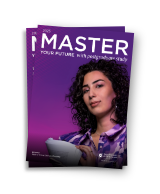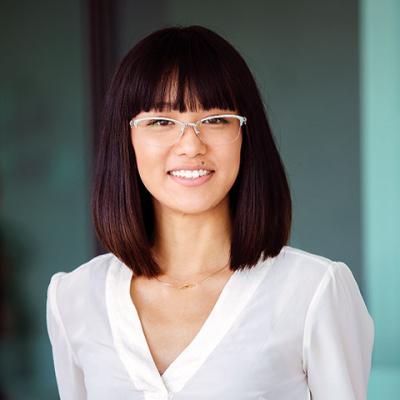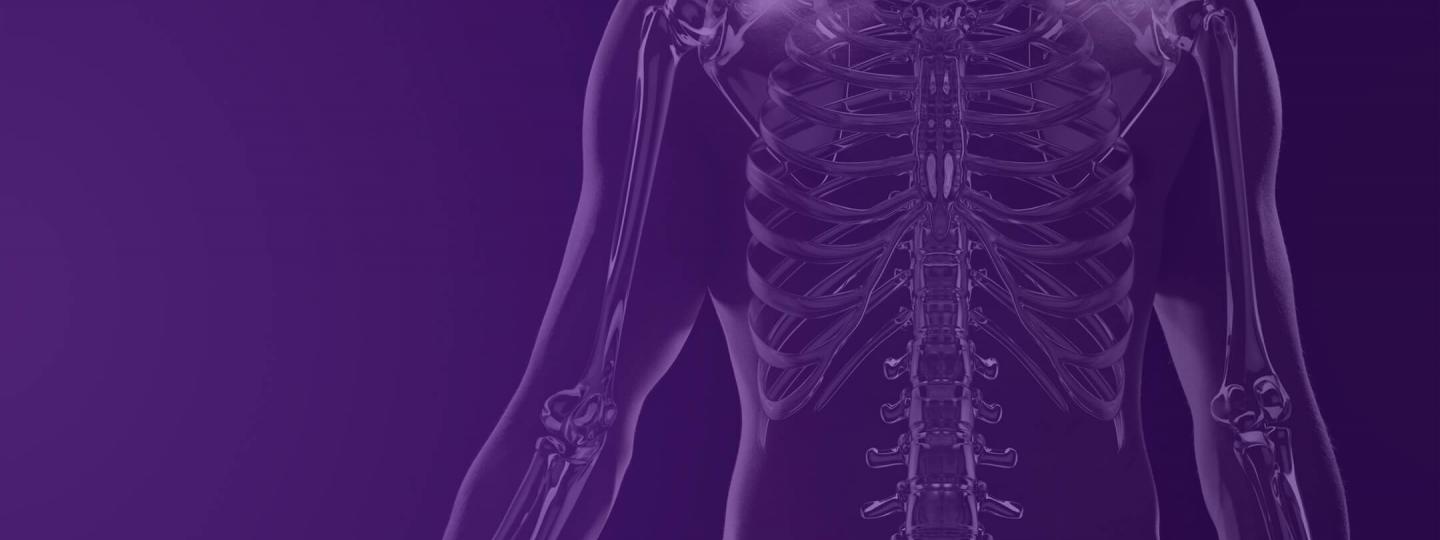
Doctor of Clinical Dentistry
Overview
If you're a general dentist looking to specialise, the three-year Doctor of Clinical Dentistry postgraduate program will prepare you for specialist registration and practice.
This program enables you to become a registered specialist in dento-maxillofacial radiology, endodontics, oral medicine, orthodontics, periodontics, prosthodontics or special needs dentistry.
Study at the state-of-the-art $138 million Oral Health Centre at UQ’s Herston campus and develop a comprehensive understanding of the physiological, biochemical, structural and functional processes involved in general and oral health. Gain advanced diagnostic skills and clinical competence, as well as an in-depth understanding of scientific methodology, research and clinical practice.
You'll undertake extensive clinical placements at the Oral Health Centre, as well as public dental sector associated clinics and external healthcare facilities in South East Queensland.
You'll also develop advanced abilities in scientific reasoning and research, and study the role of research in dentistry and how it can support your clinical practice. You'll also complete a supervised project for submission to a peer-reviewed journal.
Program highlights
- Benefit from interdisciplinary learning and patient care at the state-of-the-art Oral Health Centre with the most modern equipment, technologies and teaching methods.
- Take advantage of collegial support and interaction with leading specialists from the first week in the first year of study.
- Maintain a research focus over all 3 years of the program.
Fields of study
Tailor your studies to suit your goals. This program offers these options:
- Dento-Maxillofacial Radiology
- Endodontics
- Oral Medicine
- Orthodontics
How you'll learn
Your learning experiences are designed to best suit the learning outcomes of the courses you choose.
- Lectures
- Tutorials
- Work placements
- Research experience
- Laboratory work
What you'll study
At UQ, degrees are called 'programs' and subjects are called 'courses'. Here's a sample of the courses you could study in this program:
- Clinical Science
- Advanced clinical practice
- Data Collection & Analyses
- Research Completion & Report
Career possibilities
Postgraduate study can take you anywhere. Depending on which field you choose, here are some of the careers you could be on your way to:
- Orthodontist
- Periodontist
- Prosthodontist
- Specialist in special needs dentistry
- Dento-maxillofacial radiologist
- Endodontist
- Oral medicine specialist
Program accreditation
The Doctor of Clinical Dentistry is accredited by:
- Australian Dental Council
Events
See all eventsStories
See all stories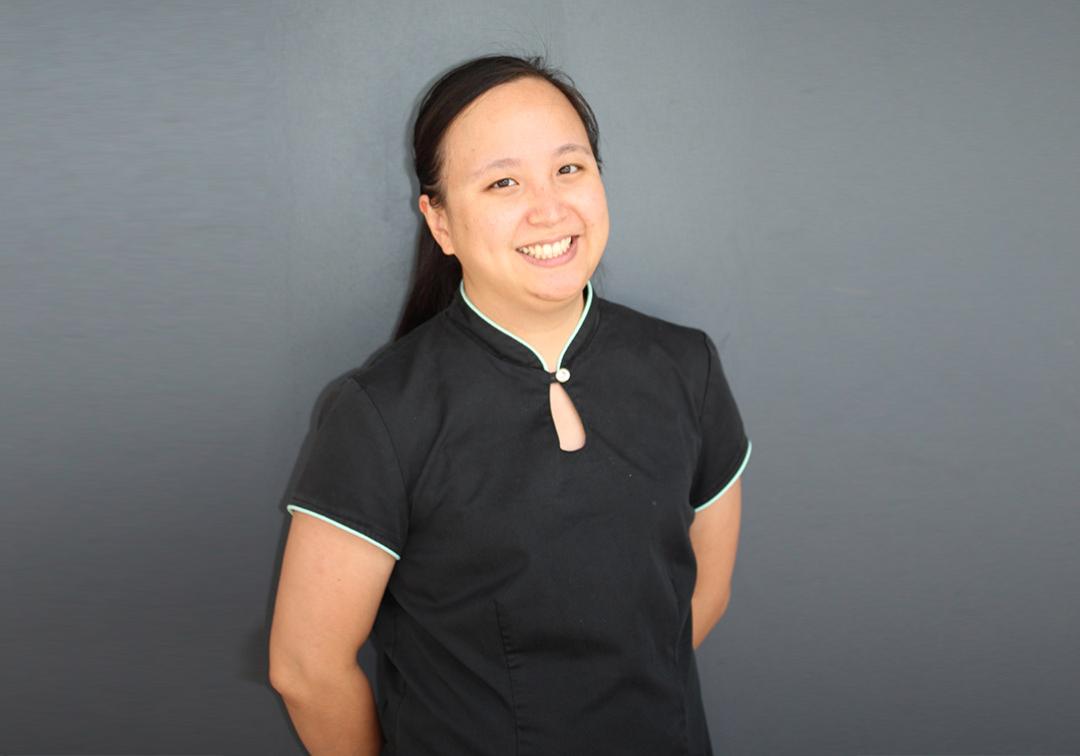
UQ people
Lydia's journey to becoming a special needs dentist
6-minute read
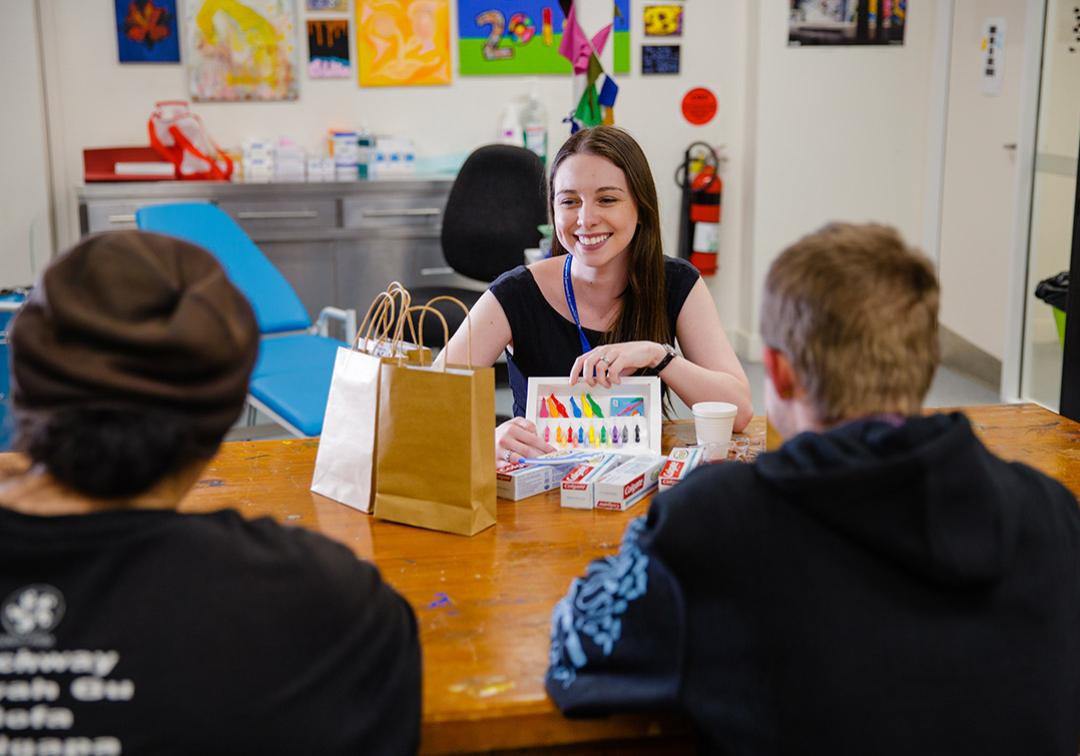
UQ people
Meet the expert: exploring dentistry with Nicole Stormon
3-minute read
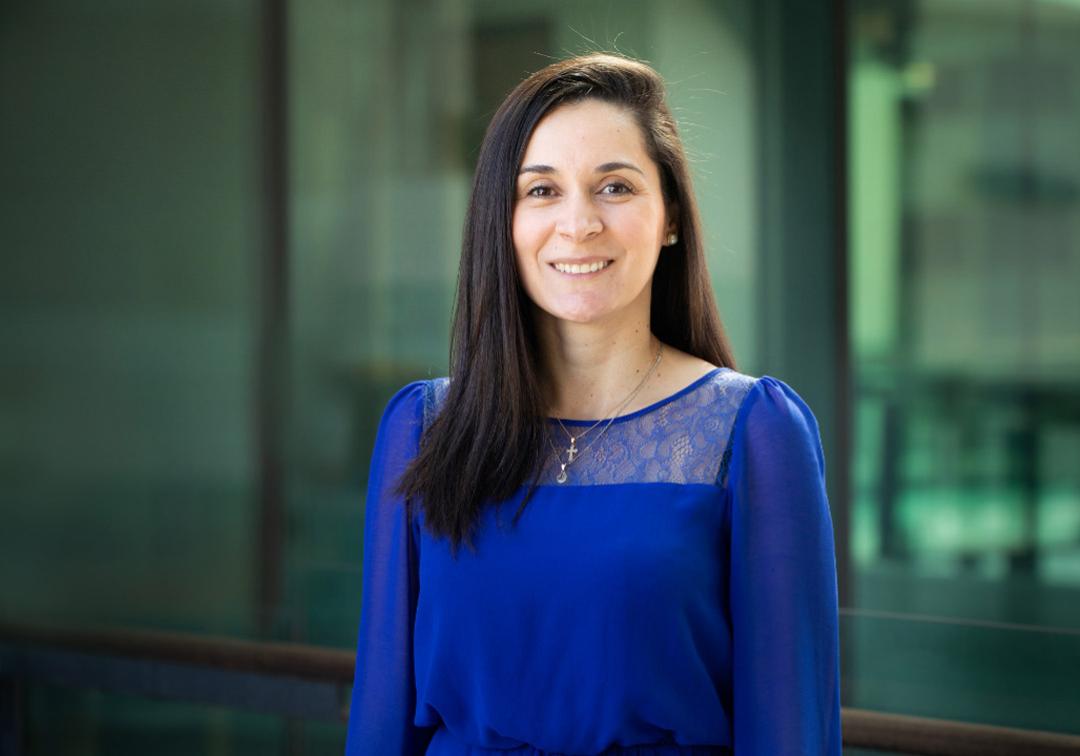
UQ people
Special needs dentistry: insights from Dr Claudia Lopez Silva
4-minute read
Stories
See all stories
UQ people
Lydia's journey to becoming a special needs dentist
6-minute read

UQ people
Meet the expert: exploring dentistry with Nicole Stormon
3-minute read

UQ people
Special needs dentistry: insights from Dr Claudia Lopez Silva
4-minute read
Entry requirements
Entry requirements
To be eligible for entry, you'll need:
- Hold a degree in dentistry from UQ (or equivalent)
- Have a minimum two years of graduate clinical experience.
- Hold general or limited registration with the Dental Board of Australia.
- You must have a grade point average (GPA) of 4.0 on a 7-point scale in your previous qualification. [Note the GPA cut-off for 2024 was 5.2].
Applicants who identify as Aboriginal and/or Torres Strait Islander who meet the minimum entry requirements for this program will be offered an interview. On admission to the program, you will need to provide evidence of your Aboriginal and/or Torres Strait Islander status.
- Hold a degree in dentistry from UQ (or equivalent)
- Have a minimum two years of graduate clinical experience.
- Hold general or limited registration with the Dental Board of Australia.
- You must have a grade point average (GPA) of 4.0 on a 7-point scale in your previous qualification. [Note the GPA cut-off for 2024 was 5.2].
Applicants who identify as Aboriginal and/or Torres Strait Islander who meet the minimum entry requirements for this program will be offered an interview. On admission to the program, you will need to provide evidence of your Aboriginal and/or Torres Strait Islander status.
Relevant disciplines for previous qualifications
Hold an approved degree in dentistry from UQ (or equivalent) with a minimum two years of graduate clinical experience and be registered as a dentist with the Dental Board of Australia.
Please note that due to limited places, entry is competitive and not all applicants who meet the entry requirements are offered a place. The minimum GPA to be considered for admission into this program is 4.0. The GPA cut-off for 2024 was 5.2. Please see 'Additional application information' for further details on entry requirements.
GPA equivalent
Select where you studied and your qualification to see the GPA equivalent you need to be considered for this program.
Use the GPA equivalent as a guide. When you apply, we’ll calculate your GPA using the UQ grading scale. Any failing grades will be included. Entry requirements are subject to change.
English language requirements
IELTS overall 7; reading 7; writing 7; speaking 7; listening 7. For other English Language Proficiency Tests and Scores approved for UQ
TOEFL iBT (including Paper Edition) - Overall 100, listening 25, reading 25, writing 27, speaking 23.
PTE Academic - Overall 72, sub bands minimum 72.
CES - Overall 185, All sub bands minimum 185.
BE and OET are not accepted.
There are other ways to meet the English language requirements. For some programs, additional conditions apply.
Inherent requirements
To complete this degree, you have to meet its inherent requirements by demonstrating essential skills and attributes. Read the inherent requirements before you apply.
Student visas
International students who are accepted into full-time study in the Doctor of Clinical Dentistry are eligible to apply for an Australian student visa (subclass 500).
There are a number of requirements you must satisfy before a visa is granted, including the Genuine Student (GS) requirement.
Additional application information
Additional application information
Fields of study
Fields of study
Tailor your studies to suit your goals. This program offers these options:
In this field of study, you'll become familiar with advanced imaging techniques at the Oral Health Centre on UQ’s Herston campus and visiting sessions at medical radiology practices and the Royal Brisbane and Women's Hospital.
Cone beam imaging is a major component of this field of study.
This field of study consists of practical and theoretical components and is designed for the student to acquire the advanced skills needed for evidence-based patient treatment and transition to high-quality practice in endodontics. The three year field of study offers formal coursework and clinical training with internationally recognised experts in the field.
This field of study highlights current developments in technology and strategies that are directly applicable to endodontic practice. The clinical education is underpinned by in-depth instruction in research methodology including an original research project culminating in a publishable thesis.
In-line with the expectations of a dental specialist in private practice, this field of study includes interdisciplinary work in courses, seminars and tutorials jointly with other disciplines.
Clinical training emphasises patient and practice management, strategies for complex treatment challenges and understanding evolving technical advancements in the field.
Surgical operatories feature modern equipment, instrumentation, dental operating microscopes and hospital trained assisting teams.
The field of study includes rotations in oncology, dermatology, pain diagnosis and management, sleep medicine, and soft and hard tissue pathology, including salivary gland disorders.
Graduates often work in a multidisciplinary environment to ensure the best outcomes for patients. There may also be the opportunity through a memorandum of understanding between UQ and the Royal Australasian College of Dental Surgeons to obtain a FRACDS fellowship (Oral Medicine special stream), which can be used as a post-nominal.
You'll study cephalometric theory and practice, craniofacial anatomy, development and morphology, biological force systems and their application, radiology and radiography techniques.
Major clinical pursuits include orthodontics, diagnosis and management of dental and craniofacial anomalies, cleft lip and palate, and management of complex malocclusions.
Your clinical work will be undertaken at the Oral Health Centre on UQ’s Herston campus and teaching hospital facilities, such as the Cleft Clinic at Queensland Children's Hospital, and orthognathic surgery through the Maxillofacial Unit (Royal Brisbane and Women's Hospital).
You'll study immunology, microbiology, oral medicine and clinical oral pathology, biology of the periodontium and pulp, periodontal restorative interrelationships, implantology and radiology.
You'll gain experience treating patients referred to the periodontal clinic, in addition to regular case presentation sessions and clinical tutorials.
You will learn a range of periodontal treatments during clinical training, including conservative, surgical, regenerative and mucogingival periodontal therapies. You will also gain skills in implantology, advanced case planning and regenerative and augmentation procedures.
You'll be taught advanced concepts in prosthodontics through a seminar and tutorial program and clinical training.
You'll gain exposure to interrelated disciplines through participation in coursework, seminars and tutorials with students in other disciplines.
You'll be trained at postgraduate level to provide special methods or techniques to prevent or treat oral health problems and develop special dental treatment plans.
Specialised facilities in treating special needs patients are provided at the Oral Health Centre on UQ’s Herston campus. You'll also gain clinical experience in the medical and surgical units of the Royal Brisbane and Women's Hospital and other teaching hospitals in Brisbane, as well as at selected public dental sector associated clinics.
Fields of study
Tailor your studies to suit your goals. This program offers these options:
In this field of study, you'll become familiar with advanced imaging techniques at the Oral Health Centre on UQ’s Herston campus and visiting sessions at medical radiology practices and the Royal Brisbane and Women's Hospital.
Cone beam imaging is a major component of this field of study.
This field of study consists of practical and theoretical components and is designed for the student to acquire the advanced skills needed for evidence-based patient treatment and transition to high-quality practice in endodontics. The three year field of study offers formal coursework and clinical training with internationally recognised experts in the field.
This field of study highlights current developments in technology and strategies that are directly applicable to endodontic practice. The clinical education is underpinned by in-depth instruction in research methodology including an original research project culminating in a publishable thesis.
In-line with the expectations of a dental specialist in private practice, this field of study includes interdisciplinary work in courses, seminars and tutorials jointly with other disciplines.
Clinical training emphasises patient and practice management, strategies for complex treatment challenges and understanding evolving technical advancements in the field.
Surgical operatories feature modern equipment, instrumentation, dental operating microscopes and hospital trained assisting teams.
The field of study includes rotations in oncology, dermatology, pain diagnosis and management, sleep medicine, and soft and hard tissue pathology, including salivary gland disorders.
Graduates often work in a multidisciplinary environment to ensure the best outcomes for patients. There may also be the opportunity through a memorandum of understanding between UQ and the Royal Australasian College of Dental Surgeons to obtain a FRACDS fellowship (Oral Medicine special stream), which can be used as a post-nominal.
You'll study cephalometric theory and practice, craniofacial anatomy, development and morphology, biological force systems and their application, radiology and radiography techniques.
Major clinical pursuits include orthodontics, diagnosis and management of dental and craniofacial anomalies, cleft lip and palate, and management of complex malocclusions.
Your clinical work will be undertaken at the Oral Health Centre on UQ’s Herston campus and teaching hospital facilities, such as the Cleft Clinic at Queensland Children's Hospital, and orthognathic surgery through the Maxillofacial Unit (Royal Brisbane and Women's Hospital).
You'll study immunology, microbiology, oral medicine and clinical oral pathology, biology of the periodontium and pulp, periodontal restorative interrelationships, implantology and radiology.
You'll gain experience treating patients referred to the periodontal clinic, in addition to regular case presentation sessions and clinical tutorials.
You will learn a range of periodontal treatments during clinical training, including conservative, surgical, regenerative and mucogingival periodontal therapies. You will also gain skills in implantology, advanced case planning and regenerative and augmentation procedures.
You'll be taught advanced concepts in prosthodontics through a seminar and tutorial program and clinical training.
You'll gain exposure to interrelated disciplines through participation in coursework, seminars and tutorials with students in other disciplines.
You'll be trained at postgraduate level to provide special methods or techniques to prevent or treat oral health problems and develop special dental treatment plans.
Specialised facilities in treating special needs patients are provided at the Oral Health Centre on UQ’s Herston campus. You'll also gain clinical experience in the medical and surgical units of the Royal Brisbane and Women's Hospital and other teaching hospitals in Brisbane, as well as at selected public dental sector associated clinics.
Fees and Scholarships
Indicative annual fee
Approximate yearly cost of tuition (16 units). Your fees will vary according to your study load. Fees are reviewed each year and may increase.
$60,624
2025
$60,624
2025
Approximate yearly cost of full-time tuition (16 units). Your fees will vary according to your study load. Fees are reviewed each year and may increase.
AUD $86,784
2025
AUD $86,784
2025
Additional costs
- Digital Camera (value at student's discretion)
- Annual CPR re-certification (approximately $80 per year)
- Annual Dental Board registration ($362)
- First Aid Certificate (including CPR) (approximately $130 renewed every 3 years)
- Laptop computer (value at student's discretion)
- Costs for vaccinations and serology are the responsibility of the student and will vary based on individual and program requirements.
Government assistance
Financial aid
As an international student, you might be eligible for financial aid – either from your home country, or from the Australian Government.
FEE-HELP
Domestic students who are accepted into the Doctor of Clinical Dentistry pay tuition fees.
FEE-HELP is an Australian Government loan scheme to assist eligible students with the cost of their tuition fees.
Centrelink support
The Australian Government offers a number of income-support payments to eligible Australian university students.
Scholarships
You may be eligible for more than 100 scholarships, including:
...Loading
How to apply
Applying online
All international applications should be submitted to UQ. If you prefer, you can use an approved UQ agent in your country.
The program code for the Doctor of Clinical Dentistry is 5616.
Find out more about applying for postgraduate coursework study
Applying online
All domestic applications should be submitted to UQ.
The program code for the Doctor of Clinical Dentistry is 5616.
Find out more about applying for postgraduate coursework study
Important dates
The closing date for this program is:
- To commence study in semester 1 - August 31 of the previous year.
Visa processing times vary. Apply as early as you can.
To learn more about UQ dates, including semester start dates, view the Academic Calendar.
Important dates
The closing date for this program is:
- To commence study in semester 1 - August 31 of the previous year.
To learn more about UQ dates, including semester start dates, view the Academic Calendar.
Aboriginal and Torres Strait Islander applicants
For support with applying – or if you have any questions about university life – get in touch with our Aboriginal and Torres Strait Islander Studies Unit.
Explore other programs
Express yourself. And your interest.
They say choosing a degree is hard, which is why we've made it easy. Register your interest and we'll send you everything you need to know about applying to UQ.

